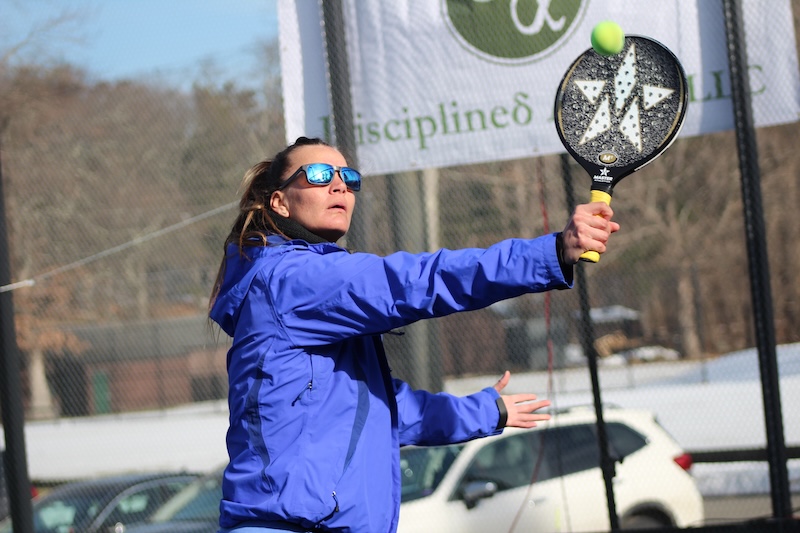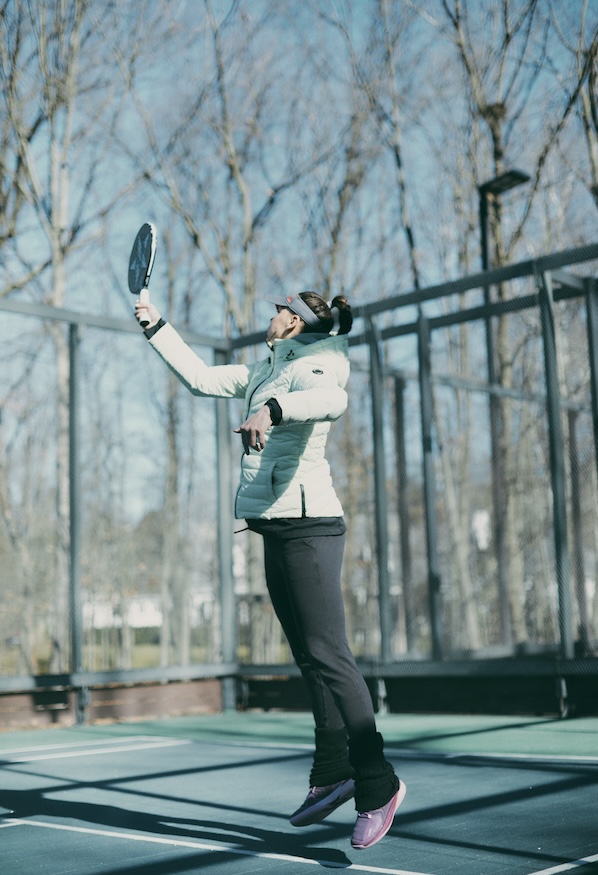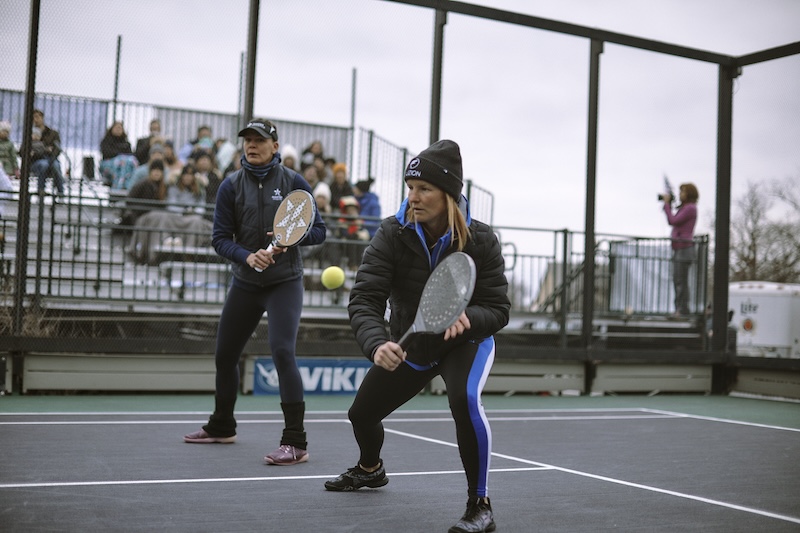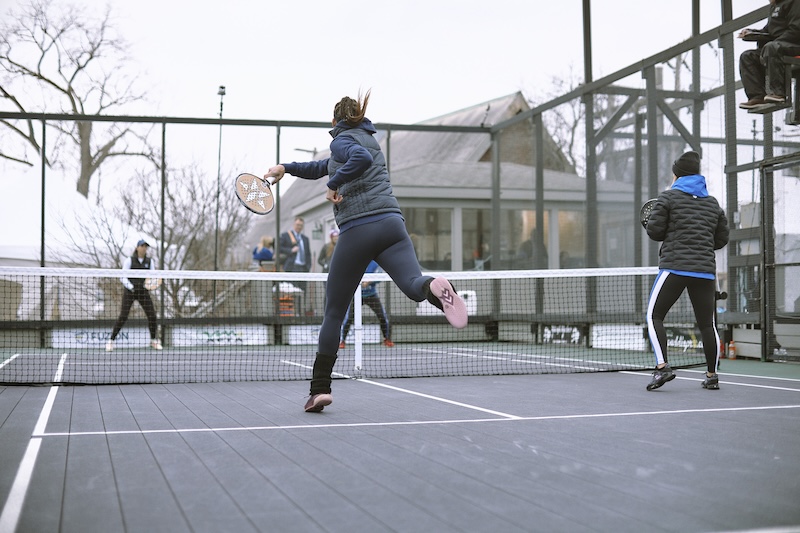NEWS
Momentum Swings: What to do about them

Most platform tennis players would agree that momentum swings in the game of paddle are ever more present than in any other sport. Questions often asked about momentum swings:
- When does it happen?
- How do I prevent it?
- What can I do when it’s happening? and
- How do I get the momentum to turn back in my favor?
To answer the above questions, we need to take a couple of steps back and recognize that momentum swings (or momentum shifts) are linked to much more than just the mental aspect of the game—the value of practice is often underestimated or misunderstood. Most players think that spending hours on the court will lead to progress and better match results. False. It is not the amount of time we spend on court that matters but the quality of the work we put in while training. Habits are created in practice and therefore will transfer into match play.
Let’s look at the questions about a momentum shift.
When Does It Happen?
It can happen anytime, but we notice it more at the beginning of a new set, where the winning team subconsciously relaxes, allowing the opposing team to gain momentum and change the match. We have all been in a situation where we have just won the first set, take a moment, and agree to start the second set strong. Yet somehow, we end up losing the first two or three games. There is a big difference between talking about it and executing it. Whether we want to admit it or not, the brain will choose the easy way out and decide to nap for a bit, since the pressure does not feel as big at this moment.

How Do I Prevent It?
The answer might sound redundant, but practice is the answer again. We need to learn that there are no insignificant moments during matches. The most insignificant shot or point could end up being the most significant one, which is why having maximum intensity and focus while practicing will make these significant errors happen less and less. There is no reason to miss the same shot time after time without making an adjustment.
This is where technique comes into play. Technique guarantees results, so if it is not there, the game will become a guessing game. You will either be lucky that day or not, but you will not be able to maintain a high level since you aren’t able to rely on technique.
Fitness is the last piece of the puzzle. The momentum could change as we start feeling fatigue, which, again, if you practiced under tough conditions (not feeling 100%), you will have the tools to handle fatigue and push through it when it hits you.

What Can I Do When It Is Happening?
One inspiring book I have read—The Rise of Superman by Steven Kotler—talks about flow, remaining present, and being fully immersed in the “doing.” The best thing to do when a momentum swing is happening is to slow things down and focus back on the process. Everybody’s process is different, and if you do not have one, you should implement one! My process is technique and intensity. We could probably examine that topic alone, but, in the meantime, a process will help you refocus your attention on the right issues as opposed to letting emotions take over the moment. The book also discussed athletes listening to “The Voice” described as: “the unconscious mind broadcasting its perceptions to the conscious mind.” To paraphrase, the voice is always there, but we don’t always hear it as we choose to focus our attention on other distractions. We also quickly forget that opponents, human beings also with emotions, are standing on the other side of the net. There is a very high probability of them experiencing similar emotions to yours. We often give them too much credit.
When opponents are ahead and have the momentum, do not ever give up. Closing a match is not an easy task. Make your opponents earn it, keep your body language positive, and be ready for the fight. Nobody can ever know how a match will turn out until it is over.

How Do I Get the Momentum to Turn Back in My Favor?
Now we put the pieces together. We realize the momentum is shifting in favor of our opponents, therefore we go back to our process, then we milk it, we stay in it, and see if our opponents can maintain their high. Most of the time they can’t. We can then grab the momentum back. Our next job is to sustain it and keep the flow, listen to the voice, and not let interior conversations or outside distractions get the best of us.

Charlotte Sikora runs the Racquet Odyssey Camp and teaches at Radley Run Country Club in West Chester, PA. She is currently nationally ranked 3rd (as of Feb. 2024) with partner Alison Morgan.


